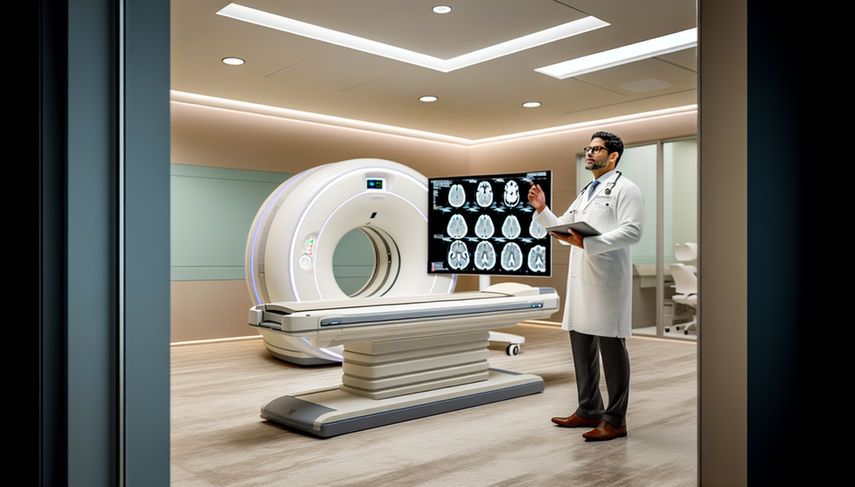Enhancing Diagnostic Accuracy in CT Workflows through AI Analysis of Medical Big Data

Computed tomography (CT) has been a fundamental tool in medical diagnosis for decades. However, with the advent of artificial intelligence (AI), we are witnessing a revolution in how these images are processed and analyzed. The integration of AI in CT analysis not only enhances diagnostic accuracy but also optimizes CT workflows, enabling physicians to make more informed and rapid decisions.
Diving Deeper into CT Analysis with AI
AI has proven to be a powerful tool in medical imaging processing, particularly in CT. A recent study on the application of AI in cardiac imaging highlights how deep learning algorithms can improve the assessment of cardiac function and the prognosis of coronary diseases. Similarly, in the field of oncology, AI is utilized to enhance the accuracy in diagnosing gynecological cancers through the analysis of CT and MRI images, as described in a systematic review.
Moreover, AI not only improves accuracy but also increases efficiency. A notable example is the use of deep learning algorithms for the detection of stenosis and plaque classification in head and neck CT angiography, where AI has been shown to match the diagnostic performance of experienced radiologists, significantly reducing diagnostic time.
Conclusions
The integration of AI in the processing of computed tomography represents a significant advancement in modern medicine. It not only enhances diagnostic accuracy but also optimizes CT workflows, allowing for a more efficient use of medical big data. As we continue to explore and develop these technologies, it is crucial for medical professionals to stay informed and prepared to integrate these tools into their daily practice, thereby ensuring more accurate diagnoses and improved patient care.
Referencias
- [1] Development and application of artificial intelligence in cardiac imaging.
- [2] Artificial intelligence in gynecologic cancers: Current status and future challenges - A systematic review.
- [3] Deep Learning for Head and Neck CT Angiography: Stenosis and Plaque Classification.
Created 20/1/2025
